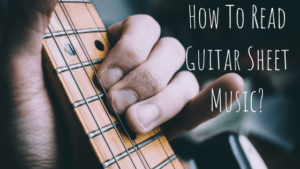Can I Learn to Play Piano by Myself?
Ok so you must be wondering, ‘Can I learn to play piano by myself?’. The simple answer is Yes; and I will tell you how.
Knowing how to play piano is an amazing skill to have. It’s very unique and fun to play. Aside from entertainment, there’s several benefits come with learning how to play the piano.
Playing piano is therapeutic. It can be quiet relaxing playing the piano. If you want to learn piano by yourself, you need to be disciplined and be determined to follow through and finish your training.
While having the interest to learn piano playing is essential; it may not be sufficient if you do not have adequate funds for training or the information that self-training is possible.
With this in mind, it is possible to play the piano without years of expensive classes correctly. With the knowledge of keys, notes, and chords coupled with a lot of practice, you can learn how to play the piano yourself.
Table of Contents
Can I Learn to Play Piano by Myself?
Yes you can. Here are some easy steps I would follow to learn piano by yourself.
Step 1 – Get Yourself A Piano
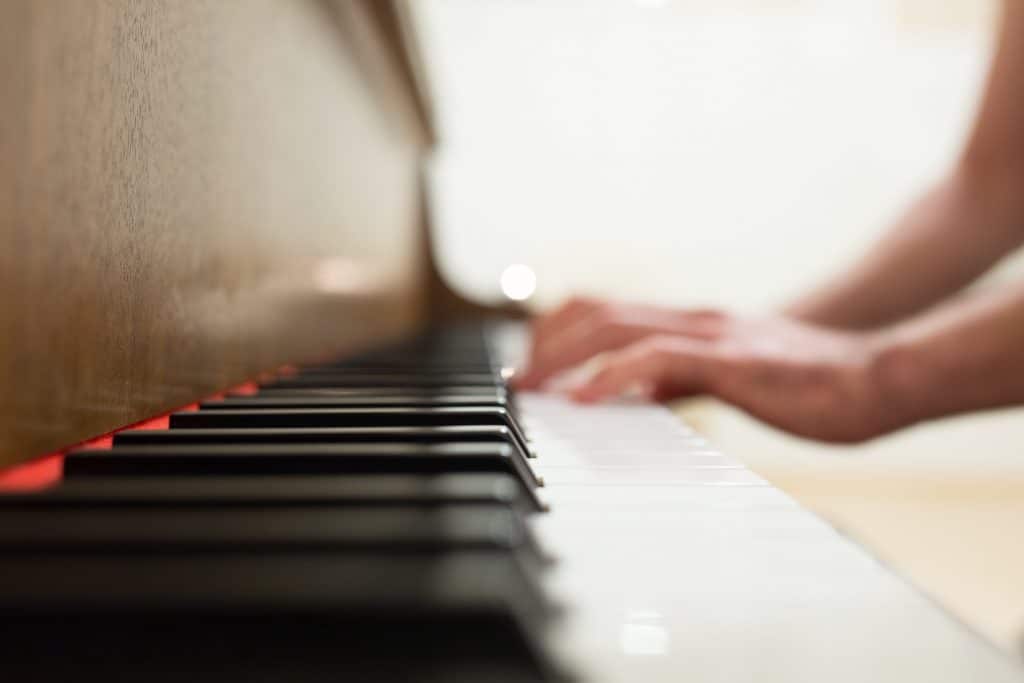
You cannot learn without the piano itself. Therefore, the first step is to acquire a piano or keyboard.
If you do not have one at home, it is critical to invest in one since you will be using it a lot. The piano can be expensive, but you do not have to spend what you do not have.
You can buy piano cheaply online on sites like craigslist. If you cannot get one at your price, still a keyboard is another suitable alternative for a start.
However, a keyboard cannot substitute the piano. A keyboard does not have all the features of a piano, but it an excellent place to start.
The Yamaha P45 keyboard could be a great option. Or you can find some great digital pianos with a classic feel on Amazon.
One other alternative is to borrow one. Ask a friend, relative or maybe a neighbour. There’s could be an old one at a school collecting dust. Don’t give up until you get yourself a piano or keyboard.
Step 2 – Familiarise yourself with the piano
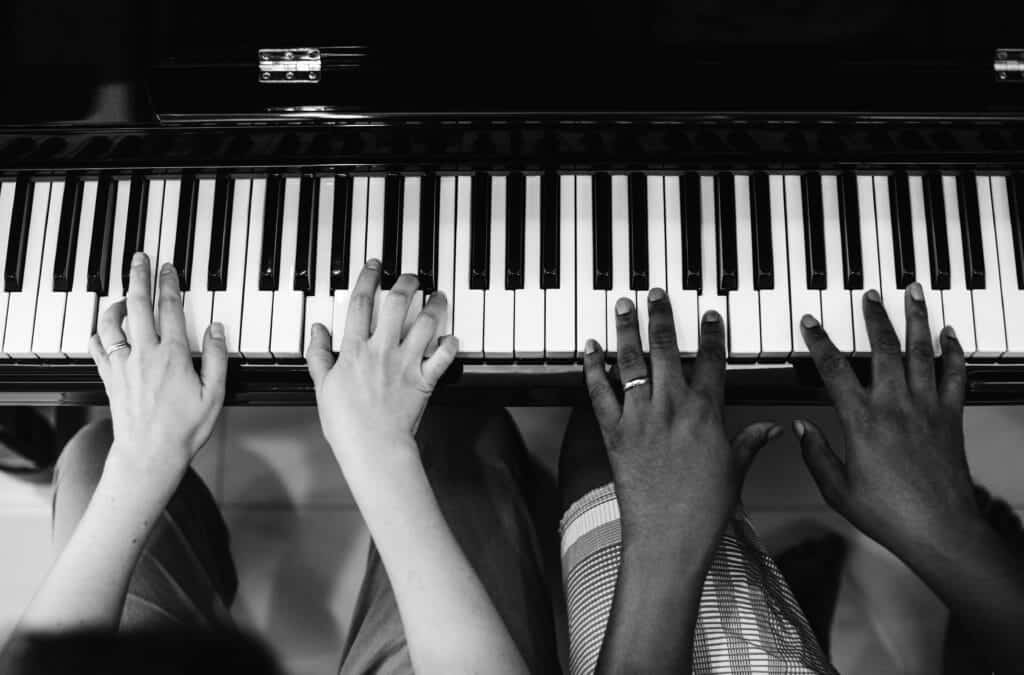
Now that your piano is sorted; you will be buzzing with excitement to get started. The next thing you need to do is to familiarise with the piano keys.
To achieve this you need to listen, really listen to the sound of the keys. Play around with your piano and note the sounds it produces.
There are different sounds which include; the middle sound, low sound, base sound, and high sounds.
The middle tones are generated at the middle of the piano, the flat tones by the left black keys while the right black keys produce the sharp tones.
Keep playing and listening to them. Each time you play note the difference between the sounds.
Keep playing until you can tell the difference between the various sounds. Note that, at this point, you do not have the play perfectly.
Just keep playing and have fun since the aim is to be able to tell and differentiate one sound from the other.
Step 3 – Get An Online Course
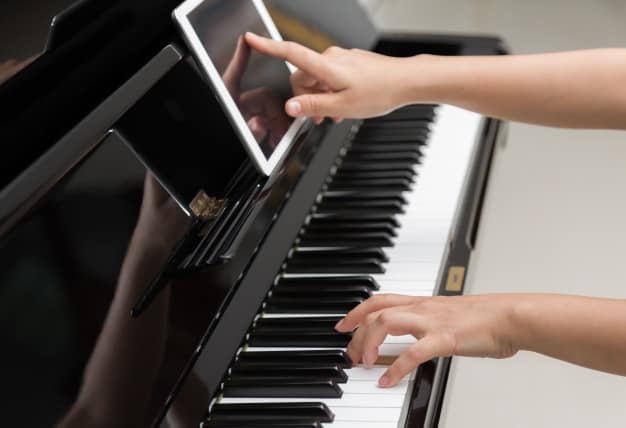
If you want to learn piano by yourself; I would seriously consider getting an online piano course.
I think an online piano course is the best way to learn piano by yourself. They are cheaper, more convenient and in my opinion the quickest way.
If I had to pick one, I would look at Piano For All or maybe Flowkey Piano as good options to start learning.
For example, with Piano For All, you only need 20 minutes a day to start learning and learn piano on your own.
By getting an online course; you are learning piano as you would with a piano teacher one to one. Except you can learn whenever you want and much quicker than getting weekly one to one lessons.
If you want to know more about piano lessons; I would check out my ‘Best Online Piano Lessons’ post. It discusses 4 piano courses worth considering that might be right for you.
Step 4 – Learn The Major Keys
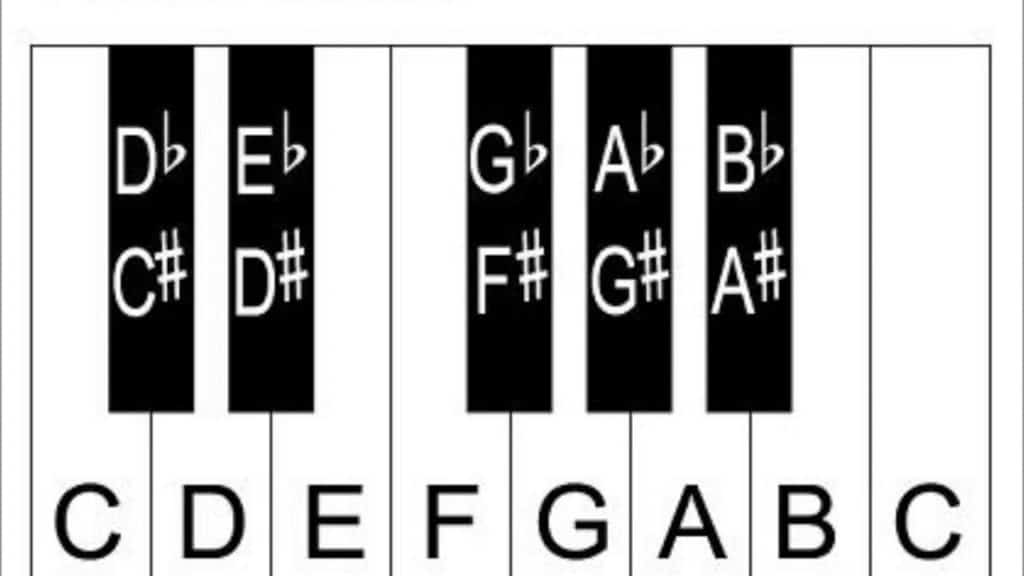
If you want yo go full cold turkey on your own, it will be harder to teach yourself piano. To identify the sounds that you hear, you will have to learn the major sounds.
The major scales are the most important because they are commonly used, are required to understanding keys.
The major keys include C, D, E, F, G, A &B. Other major scales are the C# / Db Major, D # / Eb major, F# /Gb Major, G# / Ab major and A# / Bb Major.
Some piano learners find it beneficial to learn the major keys by assigning numbers to each major key.
An excellent example of such is, 1 is C; 2 is D; 3 is E; 4 is F; 5 is G; 6 is A; 7 is B; 8 is C.
Note that in this case, the major scale has been represented by two numbers, 1 and 8. The two Cs are different such that one is lower and the other is higher. 1 depicts the middle C.
Knowing to label sounds by numbers is an essential step in helping you understand how to use fingerings, intervals, and steps when playing a song on your piano.
If you do not have musical knowledge, you do not have to worry since you will learn more as you advance.
Again, I would suggest you try an online piano course like Piano For All Here as it will make this a lot easier and also the next step below which is reading chords.
Step 4 – Learn to Read the Chords
Songs are composed of varying chords, and you need to learn to recognize the various chords.
Although chords have different keys, they are made of the same notes. Therefore you need to learn to read music notes.
Don’t worry, it’s not too difficult. There are simple steps that you can follow to help you read the notes.
The first step is to learn how to read sheet music. Start by looking at the treble clef which allows you to know which notes to play with your right hand.
Next, you will familiarise with the letter names of the lines and spaces. The second step is to write down the note letter names to help you remember them.
At this point only focus on the white keys of the piano. The third step is to memorise the letter names and move onto the bass clef.
The fourth step is to name your spaces according to the song notes and finally trace your fingers onto a hand diagram to make it easier to read the numbers.
Several strategies can help you understand and play the music notes, be sure to find what works best for you.
Step 5 – Practice finger Placement
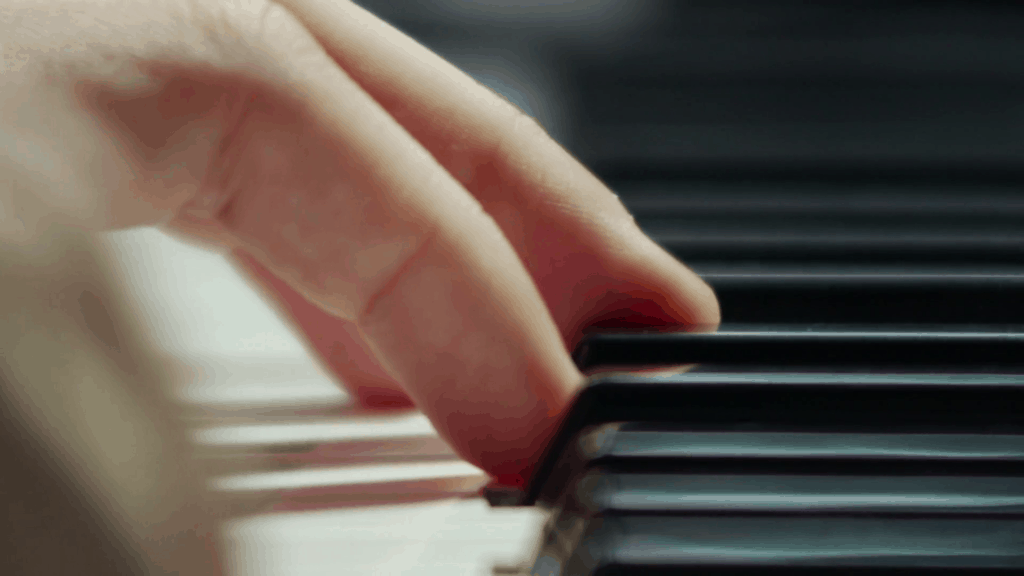
To be able to play well you need to understand which fingers play which keys. It is essential, as a beginner to learn the five-finger position of placing fingers on the keyboard.
The five-finger position teaches beginners starting with simple songs. With time the positions advance as the songs become more complex.
The fingers are numbered from number one to five with the thumb as number one and the pinky as number 5.
At first, it may be confusing to think that finger numbers are notes, but they are not. This may make it challenging to change positions when changing notes.
However, with time as you become better at reading music, the positions will adjust eventually. The good thing about this position is that you can adjust a finger to hit a note as opposed to moving the entire hand.
Step 6 – Start Small and Grow
Start with simple songs. Learn the notes of the simple melodies and play them on your piano. Keep playing until you master them fully.
Once you have perfected the simple songs, move on to difficult ones and take your time to learn and play them.
As you play, it is helpful to hum or sing along. Doing so will help you to stay in tune and in time with the song. Keep advancing and trying new songs to improve your skills as you grow.
If you are looking to find some songs to play; I would look at Flowkey Piano. It shows you easy to follow live step by step chords for beginner, intermediate and advanced songs.
Step 7 – Practice
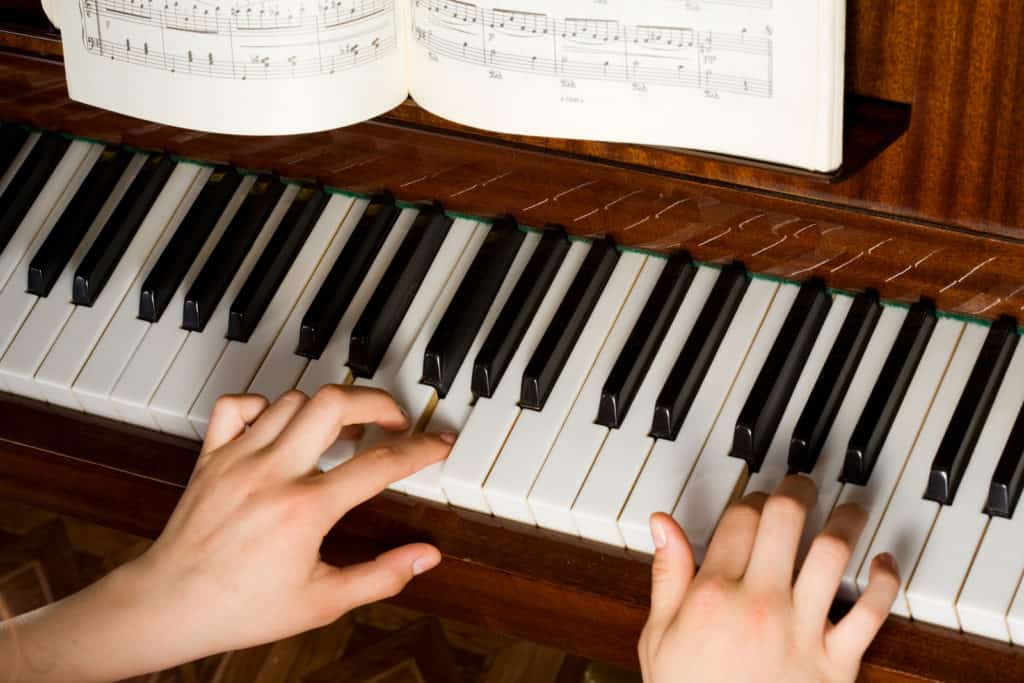
No one becomes a professional piano player overnight. Being able to play well will require a lot of practice.
Listen to songs and try to duplicate them on your piano. You can also play favourite songs using the techniques you have learned so far.
You don’t have to be perfect to start enjoying your playing. Ensure that you have fun in every session that you engage in.
It is true that you will meet challenges in your training, but whatever it is, do not give up.
Overall, it is the consistent practice that makes the best piano player. Keep your practice levels high like three to four times a week and you will be able to teach yourself piano in no time.
Can I Learn to Play Piano by Myself?
Yes you can. I would get out there and find yourself a piano or keyboard and consider getting an online course like Piano For All. It the cheapest and quickest way to learn piano by yourself.

